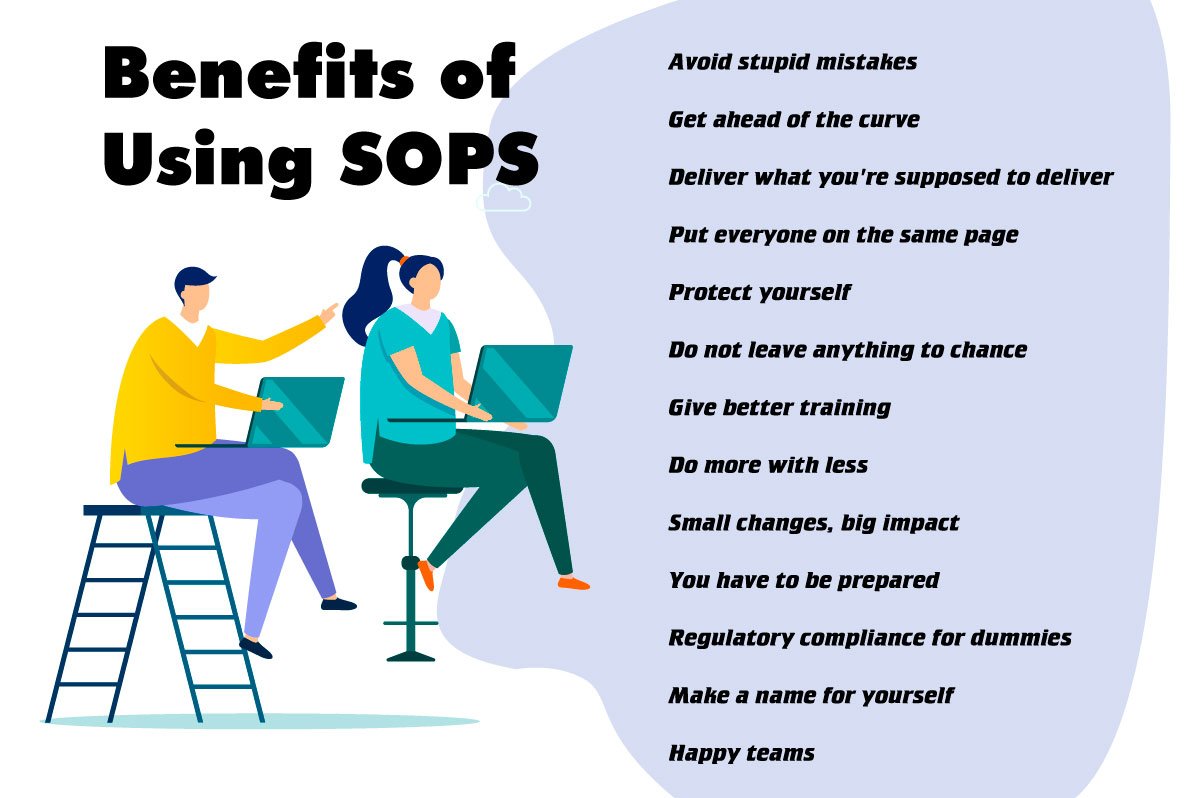The Secret To A Fail-proof Standard Operating Procedure (Part 1)
No one is going to claim that McDonald's makes the best hamburger in the world. So why can they sell $ 50 million hamburgers a day? Because they can deliver the same burger everywhere, every time. That's the magic of a standard operating procedure (SOP), and it works in any business where it's used correctly. In the first part of this interesting article, you will learn:
What is a standard operating procedure?
What are the benefits of an SOP?
How would your department grow if your team executed each task accurately and quickly? Whether you work in a small business or a large company, read on to find out how to make that vision a reality.
What is a standard operating procedure?
Definition
A standard operating procedure (SOP) is an official document with detailed instructions that describe how to perform a specific task.
Organizations use it to help their staff perform consistent work.
A standard operating procedure lets your team know exactly what to do, when to do it, and how to do it.
This is not a high-level procedural document. The SOP addresses the nuts and bolts (sometimes literally) of the job with specific steps that leave little or no room for interpretation or error.
Who uses standard operating procedures?
SOPs can be used in any vertical. They are especially important for companies with tasks that are repeated over and over again. In those cases, rationalization results in lower costs and higher production. Standard operating procedures are common in:
Manufacturing
Maintenance
Food services
Call centers
Military
And more.
You should seriously consider creating SOPs for specific procedures before growing your business if you want to maintain high quality.
Benefits of SOPs

Avoid stupid mistakes
Left to their own devices, there is very little chance that your crew will complete a task in the same way that you would. Define the "proper" way to do everything and have each employee work as your best employee.
Get ahead of the curve
SOPs guide teams toward preventing problems rather than reacting to them. They make sure nothing falls between the empty spaces.
Deliver what you're supposed to deliver
SOPs are a natural quality management system that ensures your team's work is up to par at all times. This helps you fall behind and redo the work.
Put everyone on the same page
Lack of communication can occur in two ways:
- The person speaking may use the wrong words.
- The person listening may misinterpret.
That means that simply providing a single source of vetted information could cut errors by up to half. That adds up to huge savings in time and resources.
Protect yourself
Even in well-managed facilities, something will go wrong. Keep the blame from falling on you by showing that you have SOPs and that they are being followed. It also protects the entire company from fines and litigation.
Most importantly, giving your team all the information it needs in a detailed SOP prevents accidents from happening in the first place. That brings us to the next point.
Do not leave anything to chance
It's easy to forget to mention details when assigning tasks on busy days. That becomes a big problem when those details are health warnings, safety measures, or environmental hazards.
To make sure you remember every relevant detail at all times, SOPs are the way you write them down once and easily attach them to tasks.
Give better training
With standard operating procedures, you can begin bringing new employees to your jobs in an orderly manner. Since SOPs are close at hand at all times, new hires can work independently sooner, freeing up more experienced professionals to focus on their own workloads.
Do more with less
Right now, your employees are wasting time tracking down the same information over and over again. Instead, your team can direct that energy to get the job done. By providing assignments with complete and detailed instructions, standardization frees up resources.
Small changes, big impact
Once a standard is established, you can try new methods and make improvements.
When all employees start doing the same job in the same way, they will surely think of ways it could be better and let you know. If you don't have this experiment mentality, it may sound like a complaint. Instead, if you have an easy way to act on their suggestions, you can direct that energy toward something positive. Often times, these small changes add up quickly.
You have to be prepared
A department without standard operating procedures finds itself in big trouble the day key employees resign or retire, or even go on vacation. The team is more flexible when everyone's know-how is in one place (commonly known as a "single source of truth"). They can train and adapt regardless of changes.
Regulatory compliance for dummies
The most important instructions of all are the law. If regulations are misinterpreted or disobeyed, it could turn out to be a catastrophe for the entire company. Standard operating procedures ensure that all employees know what they must comply with and know how to do it.
Make a name for yourself
Managers who are efficient and effective leading departments that can grow without growth problems. Good companies trust them with better opportunities. You are in a strong position to move up the ladder when your day-to-day operations are known and reliable.
Happy teams
SOPs prepare your team members for success.
Expectations: They understand exactly what they are expected to do.
Support: They know the perfect place to find the resources they need.
Acknowledgment: You listen and act on their requests and recommendations for improvement.
Independence: you have no need to micromanage.
Impact: They see that their work moves the department forward instead of wasting it.
Did you like The article? Wait for the second part next week!
Source: Limble CMMS
